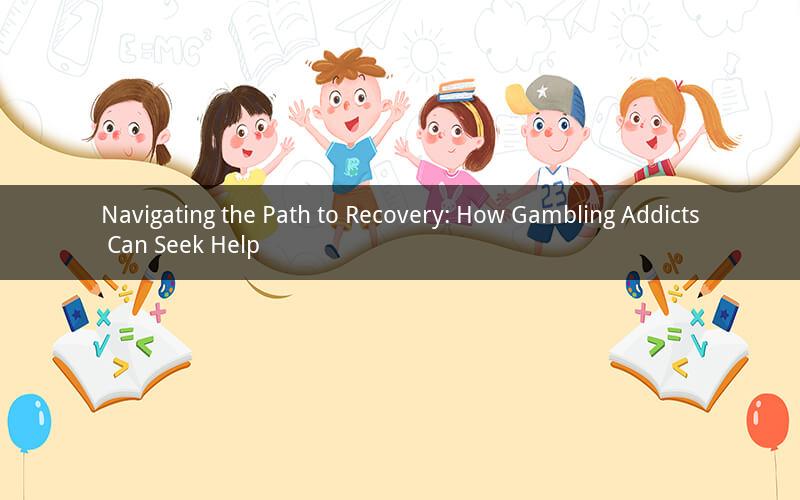
Introduction:
Gambling addiction is a complex issue that affects millions of individuals worldwide. It is a condition characterized by the inability to control or stop gambling, despite negative consequences. This article delves into the various ways in which gambling addicts can seek help and embark on the journey towards recovery. By understanding the available resources and support systems, individuals can take the necessary steps to overcome their addiction and lead a healthier, more fulfilling life.
1. Understanding Gambling Addiction:
Before delving into the methods of seeking help, it is crucial to understand the nature of gambling addiction. Gambling addiction is a progressive disorder that can lead to severe financial, emotional, and social problems. It is often characterized by the following signs and symptoms:
a. Inability to control gambling behavior
b. Preoccupation with gambling thoughts
c. Continuing to gamble despite negative consequences
d. Lying or hiding gambling activities
e. Risking or losing significant relationships, jobs, or opportunities due to gambling
2. Professional Help:
Seeking professional help is an essential step in overcoming gambling addiction. Here are some key resources and professionals that can provide support:
a. Therapists: A therapist specializing in addiction can offer personalized treatment and guidance. Cognitive-behavioral therapy (CBT) is often effective in helping individuals develop healthier coping mechanisms and address underlying issues contributing to their addiction.
b. Addiction counselors: Addiction counselors are trained professionals who can provide support, education, and guidance throughout the recovery process. They can help individuals develop a comprehensive treatment plan tailored to their specific needs.
c. Support groups: Support groups such as Gamblers Anonymous (GA) provide a safe and supportive environment for individuals struggling with gambling addiction. Sharing experiences and receiving encouragement from others in similar situations can be incredibly beneficial.
3. Treatment Options:
There are various treatment options available for gambling addicts, depending on the severity of their addiction and individual preferences. Here are some common treatment approaches:
a. Inpatient treatment: Inpatient treatment programs offer structured and intensive care for individuals struggling with severe gambling addiction. These programs typically last for a few weeks to several months and provide a supportive environment free from triggers and temptations.
b. Outpatient treatment: Outpatient treatment programs offer flexibility and can be suitable for individuals with less severe addiction or those unable to commit to inpatient care. These programs typically involve regular therapy sessions, support group meetings, and other activities aimed at promoting recovery.
c. Medication: While there is no specific medication for gambling addiction, certain medications may be prescribed to address underlying issues such as depression or anxiety that contribute to gambling behavior.
4. Self-help Strategies:
In addition to professional help and treatment programs, individuals can adopt self-help strategies to support their recovery journey. Here are some effective self-help strategies:
a. Establishing boundaries: Set strict limits on gambling activities, including time spent gambling and money spent on gambling. Use tools such as self-exclusion programs to prevent access to gambling venues.
b. Developing healthy habits: Engage in activities that promote mental and emotional well-being, such as exercise, hobbies, and socializing with non-gambling friends and family.
c. Learning coping skills: Develop healthy coping mechanisms to deal with stress, boredom, or other triggers that may lead to relapse. Techniques such as mindfulness, meditation, and deep-breathing exercises can be beneficial.
5. Aftercare and Support:
Recovery from gambling addiction is an ongoing process, and it is essential to maintain support and continue with aftercare. Here are some important aspects of aftercare:
a. Continuing therapy: Regular therapy sessions can help individuals address any lingering issues and provide ongoing support as they navigate the challenges of recovery.
b. Support groups: Continuing to attend support group meetings can provide a sense of community and support, helping individuals stay motivated and connected to others in recovery.
c. Monitoring progress: Keep track of progress and setbacks, and be prepared to adjust the recovery plan as needed. Celebrate successes and learn from mistakes.
Frequently Asked Questions:
1. What is the most effective treatment for gambling addiction?
Answer: The most effective treatment for gambling addiction varies depending on the individual's specific needs. A combination of therapy, support groups, and self-help strategies often yields the best results.
2. Can gambling addiction be cured?
Answer: While gambling addiction is a chronic condition, it can be effectively managed and controlled through appropriate treatment and ongoing support.
3. How long does it take to recover from gambling addiction?
Answer: The duration of recovery from gambling addiction varies from person to person. Some individuals may experience immediate improvement, while others may require ongoing treatment and support for several years.
4. Can medication help with gambling addiction?
Answer: While there is no specific medication for gambling addiction, certain medications may be prescribed to address underlying issues such as depression or anxiety. It is important to consult with a healthcare professional to determine the most suitable treatment approach.
5. Can family and friends provide support for gambling addiction?
Answer: Yes, family and friends can play a crucial role in supporting individuals struggling with gambling addiction. Encouraging them to seek help, offering emotional support, and being involved in their recovery process can significantly improve outcomes.